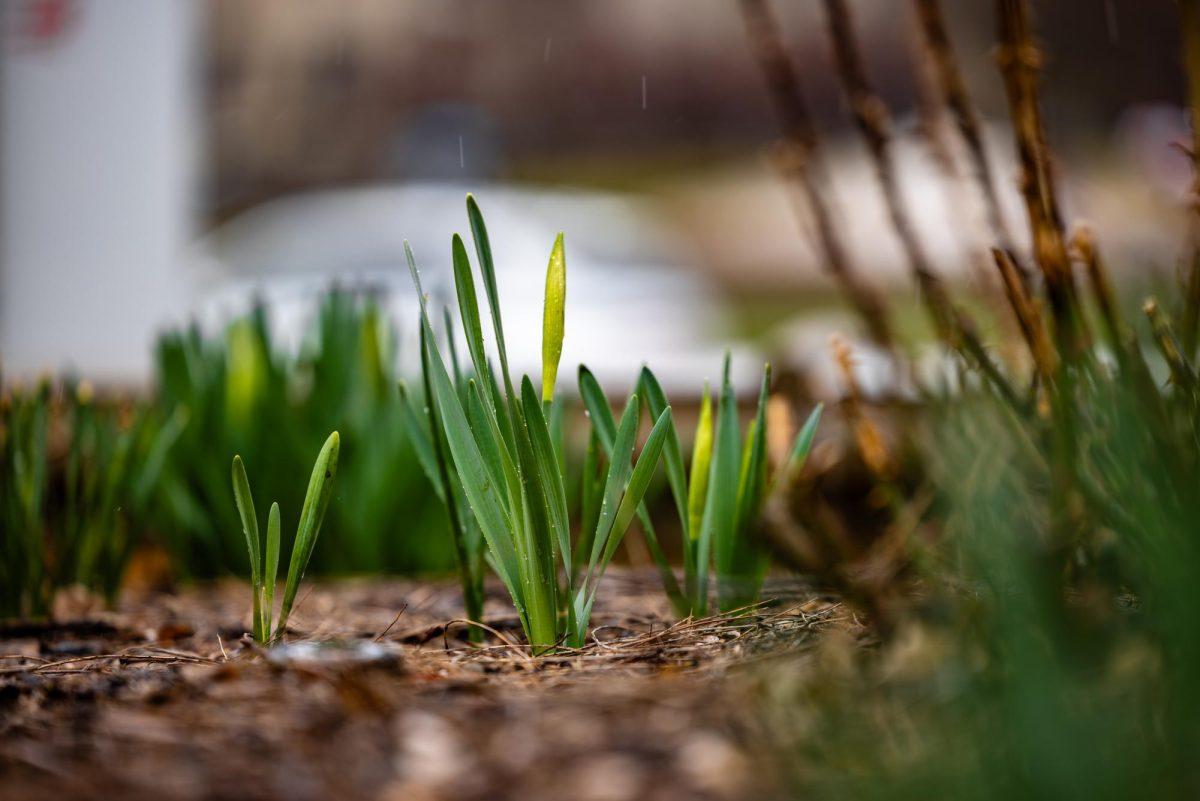Spring cleaning means dusting the untouched corners of your dorm or apartment or scrubbing the mysterious substances off of your floor you told yourself you would eventually get to months ago. But spring cleaning can, and arguably should, go beyond tidying up your physical space. It’s been a long year, and spring is a great time to take care of yourself and prioritize your mental health. Here are some tips on how to keep growing while staying grounded this spring.
Make a space that reflects your mind
As cliché as it sounds, the first step to feeling more productive is cleaning your space. Not only can it make you feel more at ease, but it shows you care about yourself enough to give yourself the space you deserve to live in. I recommend turning on your favorite playlist or podcast and starting with the easiest space to clean. This way, it’s easier for you to clean more difficult spaces because you’re already in a good flow. If you live with roommates who tend to be messier, it’s okay to have a conversation about cleaning up a little bit more. I’ve been on both sides of these conversations, and open communication and kindness is key. Upgrading your space may require planning a day where you have time to clean or staying in for a night. But I think the best way to clean is to slowly do it throughout the day — small changes add up to make a big difference.
Write it down
Buy a journal, notebook or use your notes app to write down your feelings and thoughts. Even the simple act of recording yourself talking about your thoughts out loud can be therapeutic. Don’t believe journaling can improve your life? Try doing this for 30 days, and if you’re still not sold, that’s fine. A 2008 study from the Educational Resources Information Center Institute of Educational Sciences found journaling can have a positive impact on college students’ self-growth and inner characteristics such as self-confidence. There’s tons of ways to journal — one of my favorites includes using prompts for the purpose of getting to know yourself better. To do this, I suggest looking up journal questions on Pinterest. If you don’t have Pinterest, or you’re feeling lazy, I came up with a few to get you started.
- General check-in: How are you feeling? What’s your mood, and what are the things you did today that could have impacted your mood?
- Write down a few things that make you feel genuine happiness. How can you maximize your time spent with these things, people or activities?
- Who do you feel you can be yourself around? How can you plan on seeing these people more?
- Is there anyone in your life you feel you can’t be yourself around? What can you do about this?
- Think about the last time someone made you feel genuinely upset. Why did it get to you?
- What’s an aspect of your life you’ve been ignoring or pushing to the side?
- Think about your goals and what your daily life looked like at the beginning of the year. Write down a few things you’re proud of yourself for or goals you have achieved since then.
- What do your goals look like now as compared to the beginning of the year?
I believe in you! Happy journaling.
Get your priorities straight
Another reason journaling is helpful for self-improvement is because it helps you realize where you spend your time and where you might be giving it away. If you have certain goals you haven’t been able to meet, such as securing an internship, it’s time to think of what you can change to achieve these goals. You can make an action plan by thinking about your goal and steps you can take to get there. Steps don’t have to be linear. For example, if you want to be more productive during the day, you could start by getting more sleep or eating healthier or in the reverse order. If you’re a type B person like I am, this can feel daunting, but you don’t have to organize it precisely. You can set a tiny goal to reach your bigger goal, like instead of hanging out with friends on Wednesday, use that time to write a cover letter for your internship. This leads us to the next thing that might come up at this stage of spring cleaning your life.
Spend less time with people who don’t make you happy
If you’re prioritizing yourself and your goals, you may want to create more time for things and people who make you happy by spending less time with those who don’t. This also goes for relationships that make you feel like you continuously give more than you get.
This task can be hard because people assume the length of time you’ve known someone or the depth of memories you have with them dictates the amount of time and loyalty you should put into that relationship. But there’s a magnitude of reasons why ending or putting less effort into a relationship can be good for you. By relationship I mean friendship, romantic relationship, professional relationship or any other type. This is different for everyone, but know it’s okay to prioritize yourself.
Have compassion for yourself
Finally, spring is the perfect time to stop to smell the roses as winter defrosts. Spend time every day reframing your mind by thinking about what you’re grateful for. Look up from your phone while walking to class, and notice something as simple as liking someone’s outfit. This world isn’t fair, but by focusing on what we do have as compared to what we don’t, we set ourselves free of unnecessary negative self-talk. This also helps you grow because having a more positive outlook on life allows you to transform your thoughts. I hope this guide helps you hop into spring with a positive mindset.








